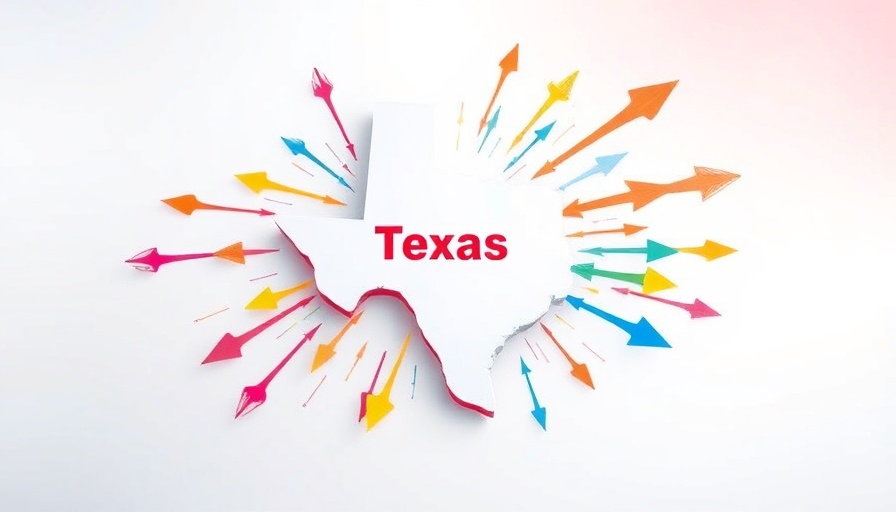
Understanding the Impact of Out-of-State Donation Limits
The Texas House's recent approval of a bill limiting out-of-state donations marks a significant shift in the state's campaign financing landscape. If passed in the Senate, House Bill 3592 would cap political contributions from out-of-state individuals to $5,000 for statewide elections, $2,500 for district offices, and $1,000 for county offices. This legislative change reflects a growing concern over the influence of external money in state politics and aims to create a more level playing field for candidates.
The Argument for Limiting Contributions
Proponents of the bill, including its sponsors, Rep. Dade Phelan, R-Beaumont, and Rep. Terri Leo Wilson, R-Galveston, argue that restricting out-of-state donations will mitigate undue influence from wealthy donors outside Texas, potentially swaying local elections. In contrast, candidates still enjoy unlimited contributions from in-state individuals, allowing local voices to be prioritized. This dual system underscores a commitment to retaining local values while ensuring that campaigns are funded primarily by Texans.
Implications for Campaign Dynamics
The proposed limits could profoundly affect the financial dynamics of Texas elections. Traditionally, Texas has had no limits on political contributions, making it one of the few states that embrace an open market for campaign financing. This contrasts sharply with states like California and Florida, which impose stricter caps. Therefore, if the Senate passes the bill, candidates may need to rethink their fundraising strategies, focusing more on local fundraising efforts.
Possible Legislative Roadblocks
Despite the bill's approval in the Texas House, its fate in the Senate remains uncertain. A companion bill from State Sen. Mayes Middleton, R-Galveston, has yet to be reviewed by a committee. The uncertainty underscores how legislative agendas can shift based on political landscapes and priorities. Ongoing debates within the Senate may refine the bill further, either enhancing or diminishing its initial goals regarding campaign finance transparency.
Reactions to the Bill's Approval
The bill's passage has already sparked heated discussions about its implications. Some Texas leaders are commending the move as necessary for maintaining democratic integrity, while critics argue that it could hinder candidates' abilities to compete effectively against well-funded opponents, particularly those from larger PACs that continue to enjoy unlimited contributions. Prominent figures, including Governor Greg Abbott, have historically benefited from substantial out-of-state donations, raising questions about whether such policies may alter support bases within the political elite.
Examining State Comparisons: A Broader Context
Texas is not alone in grappling with campaign finance issues. According to the National Conference of State Legislatures, at least 11 states allow unlimited contributions from individuals, leaving many questioning the ethicality of such systems. In Florida, individual contributions are capped at $3,000, while California enforces caps of $36,400 for gubernatorial candidates. These varying frameworks highlight the ongoing national conversation around money's role in politics and the ethical boundaries governing electoral processes.
A Look Ahead: Future Predictions and Trends
As the 2025 elections approach, the implications of this proposed legislation could lead to a profound shift in how candidates approach fundraising. If this bill holds, we may see a surge in small-donor contributions, allowing Texas to foster a culture of grassroots campaigning. This grassroots movement could empower a broader range of candidates, ultimately leading to a more representative political landscape.
Conclusion: Why This Matters to Texans
The proposed out-of-state donation limits aren't just a legislative change; they signal an evolving political narrative in Texas, where the voices of local constituents are prioritized over external influences. Residents interested in the direction of Texas politics will find this development critical to understanding future elections. Stay informed by following the latest updates in Texas news, as this bill's progression through the Senate will significantly impact the campaign landscape for years to come.
 Add Element
Add Element  Add Row
Add Row 



Write A Comment